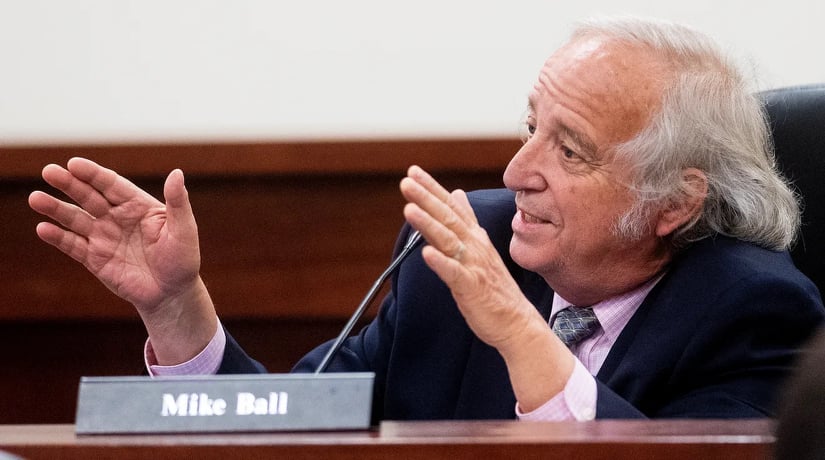The legislative branch of government was designed by the founders of our political system as the main arena to hash out political contests disputes. They embraced the concept of representative government, recognizing the importance of having a governing process with enough credibility to generate enough public support to gain voluntarily compliance to its mandates.
Having this in mind, they placed within the Constitution a requirement for a census to be
taken every 10 years for the purpose of reallocating the representation within the House of
Representatives, like reshuffling a deck of cards. Without specific guidelines, the political
implications of reshuffling the deck and dealing the cards in a manner that gives the appearance of fair representation make it one of the most complicated and contentious duties a legislative body must face.
It is sad to admit, but experience has led me to conclude that an objective sense of fairness is seldom found in the world of partisan politics; however, the most successful politicians are those who appear to possess it.
When our nation was founded, slavery put a taint on the ideals of justice and fairness that
many of our founders sought as they attempted to form a system of governance that would
establish the delicate balancing act necessary to have both a free and an orderly society.
Efforts to remove the taint have been painfully slow and arduous, and the deep political polarization largely along racial lines in Alabama is a clear indication that there is still much to be done.
There is probably nothing that exemplifies that taint more than the political machinations of the electoral process in Alabama during the 20th century to protect white supremacy. For 70 years, a constitutional mandate to reapportion the Alabama Legislature every 10 years was blatantly ignored until a federal court intervened in the early 1980s.
Even then, districts were often gerrymandered by white Democrats in power to minimize the number of districts that would elect either a black Democrat or a Republican. Despite the efforts of those in power, a series of federal court rulings led to black representation in the Alabama Legislature being roughly proportional to their population.
But the world of politics is full of unintended consequences, and the efforts to create more black majority legislative districts also gave rise to an increase in the number of lily-white
districts that were likely to elect Republicans. I believe that racial gerrymandering by the
Democrats in power was one of several factors that contributed to the political tidal wave in 2010 that led to the nearly total collapse of the Alabama Democratic Party.
As a former Republican who was a political insider directly involved with orchestrating this drastic power shift, it wasn’t long before I began to recognize that my team was just as
vulnerable as the other side had been to the human weaknesses that make concentrating of too much political power dangerous to a free and orderly society.
Reapportionment is an integral part of our delicate balancing act designed to moderate the concentration of power. It the constitutional duty of the Legislature to maintain this balance, but that duty is trumped too often by political expediency and undermined by numerous contradictory court rulings that often fail to provide clear guidance to legislators.
Beauty is in the eye of the beholder, and regardless of whether you view the congressional reapportionment map recently passed by the Alabama Legislature as a beauty or a beast, its lack of gerrymandering sets it apart from any of those previously passed by the Alabama Legislature, Republican or Democrat.
It should be a good starting place for the courts to consider they attempt to provide clearer guidelines for what has been a murky political process fraught with unanswered questions that seem to make fairness and justice an elusive dream.
Regardless of how many times those dreams are dashed by the harsh reality in the fake
world of politics, we should never stop pursuing it. The road to fairness and justice may only be a mirage in the political world, but that doesn’t mean it isn’t real. It only means we should look for it somewhere else.
Alabama is nowhere close to where we need to be, but I believe we are getting closer than we have been. However, we should remember that the road to fairness and justice is real and begins within each of our own hearts.
Mike Ball served 25 years as an Alabama State Trooper and Agent of the Alabama Bureau of Investigation, until his election to the Alabama House of Representatives, where he served 20 years. He left public office last year to devote the rest of his life to music, storytelling, and promoting his memoir “Picking, Politicking, and Pontificating (How an Ex-Cop Legalized Cannabis While Fighting Corruption)”











